What happens when you can’t afford to manage your heart condition?
Dr. TianChu Shih is a cardiologist who practices in Lone Tree, Colorado. Like many physicians, she has seen first hand the impact of lack of affordable health coverage and care. She shared with the CCC three stories about patients whose health has been put in jeopardy because of unaffordable healthcare.
While these are true stories of patients Dr. Shih has treated, names and identifying details have been changed to protect patient privacy.
First, Dr. Shih reminds us that health coverage doesn’t always mean meaningful access to healthcare. While expanded Medicaid access makes a difference to many Coloradans, network adequacy in the program remains a problem:
Jane came in smiling and bubbling for her first annual physical. She was 21 years old and just got into nursing school. She told me that she “just learned how a physical is done and I want to have my complete physical done including a Pap smear.”
We had a wonderful time chatting and completed her physical including a Pap smear.
2 days later, her Pap result came back showing cervical cancer cells. I asked my medical assistant to call Jane and to refer her to our local OB/GYN group. Later on, my MA informed me that he notified Jane, but no OB/GYN locally would accept the referral because she had Medicaid. We couldn’t find a single OB/GYN that would see a patient on Medicaid. We had to mail Jane her abnormal PAP result and ask her to call every OB/GYN on her own to find one who would accept her insurance.
I still wake up at night wondering, did Jane have her cervical cancer taken care of? Did this interfere with her nursing schooling?
Some patients struggle to find a physician who will accept their insurance, but others remain uninsured because they are without an affordable insurance option. Going without insurance can have serious health consequences. Dr. Shih remembers stories of two uninsured patients with cardiac emergencies:
Tim
I was called by a local Family physician asking a same day work-in for a patient who is very sick. Tim came into my office an hour later, shuffling gait, significant bilateral lower extremity swelling up to his thigh, could barely catch his breath. Tim was a contractor who had lost his business in the economic collapse and had been unable to afford insurance or healthcare.
During my physical examination, it was clear that he was in heart failure, and an echocardiogram confirmed my diagnosis. The problem was how to get Tim to get a cardiac catheterization then get a consult to see a cardiovascular surgeon to get a valve replacement before he dies. With his uninsured status, the only way I could was to send him to the ER of a local hospital. Luckily, I was able to talk to the ER attending and have Tim admitted to myself and get him through aortic valve replacement surgery.
He recovered and his heart function completely returned to normal. Thankfully, he found a job and got health insurance 1.5 years later, but a few years ago he could have died simply because he did not have health insurance.
Mary
I was on call and Mary was airlifted into my hospital.
Through her tears, she said that she had a chronic heart condition. She had been a very good patient and took all of her medications, and her doctor every few months. But then she lost her job and her health insurance. She could not pay for medications and feed her family, so she had stopped taking all her medicine a month before.
I asked feeling hopeless, “You stopped your warfarin?” Warfarin prevents blood clots, and is crucial to patients who have a condition like Mary’s. She replied, “Yes, all my medicine.”
I diagnosed Mary with a large blood clot near one of her heart valves.
I told her the importance of warfarin to manage her condition, and asked why she didn’t consult a doctor before she stopped. She replied, “No one would talk to me because I lost my insurance.”
Mary was desperate to treat the clot and recover her health. She did not know that she could die without the warafin. As I spoke with her, her voice getting softer and softer, she was taking more breaks between words.
We weren’t able to safely break up her clot, as doing so could have caused a massive stroke.
I still remember her cry for help, her tears, her regret of stopping warfarin.
Mary died that night after being forced to make a deadly decision to stop her prescription drugs in order to feed her family after losing her health insurance.
The CCC thanks Dr. Shih for sharing these on-the-ground impacts of unaffordable health coverage and care. Ongoing access to medical care and prescription drugs means the difference between life and death for people with chronic disease.
While there are more health coverage options today for people with chronic disease, we know that many Coloradans remain unable to afford their premiums or their out-of-pocket costs.
As one way to move the state forward and provide more affordable health coverage options, the CCC supports HB19-1004, which studies the possibility of offering a public health insurance option for Coloradans to purchase.

